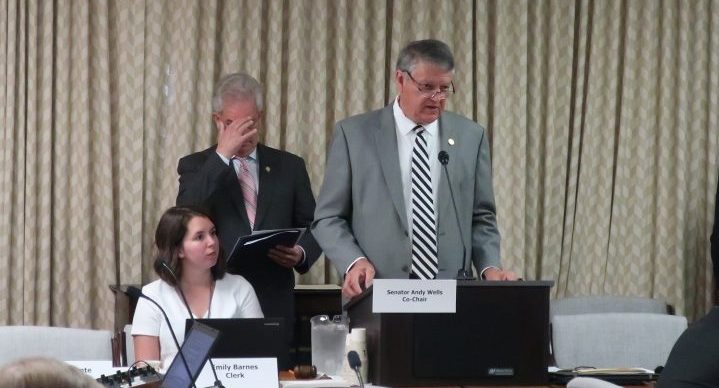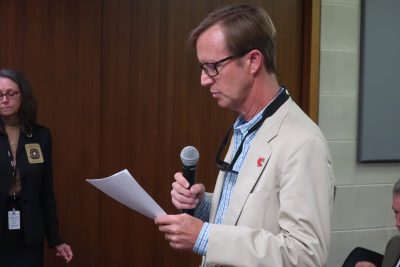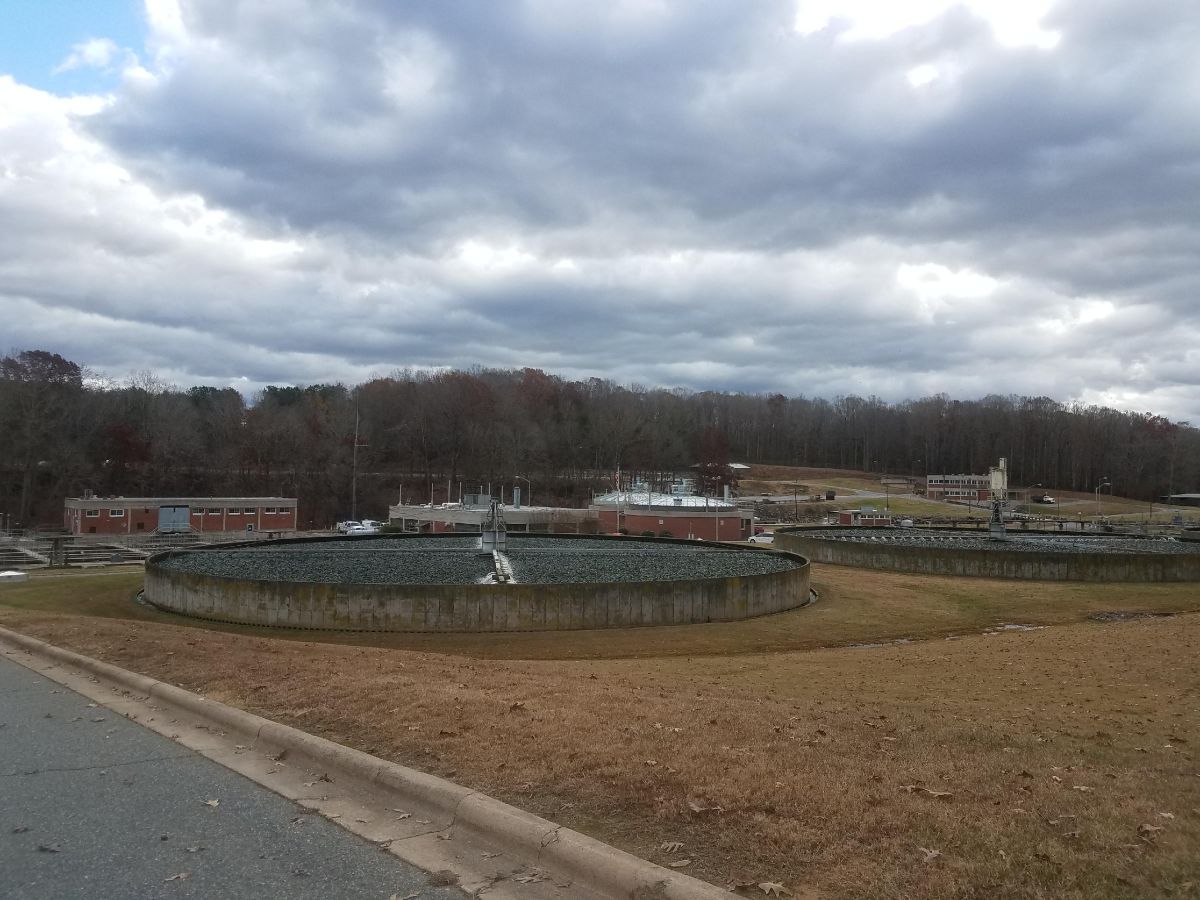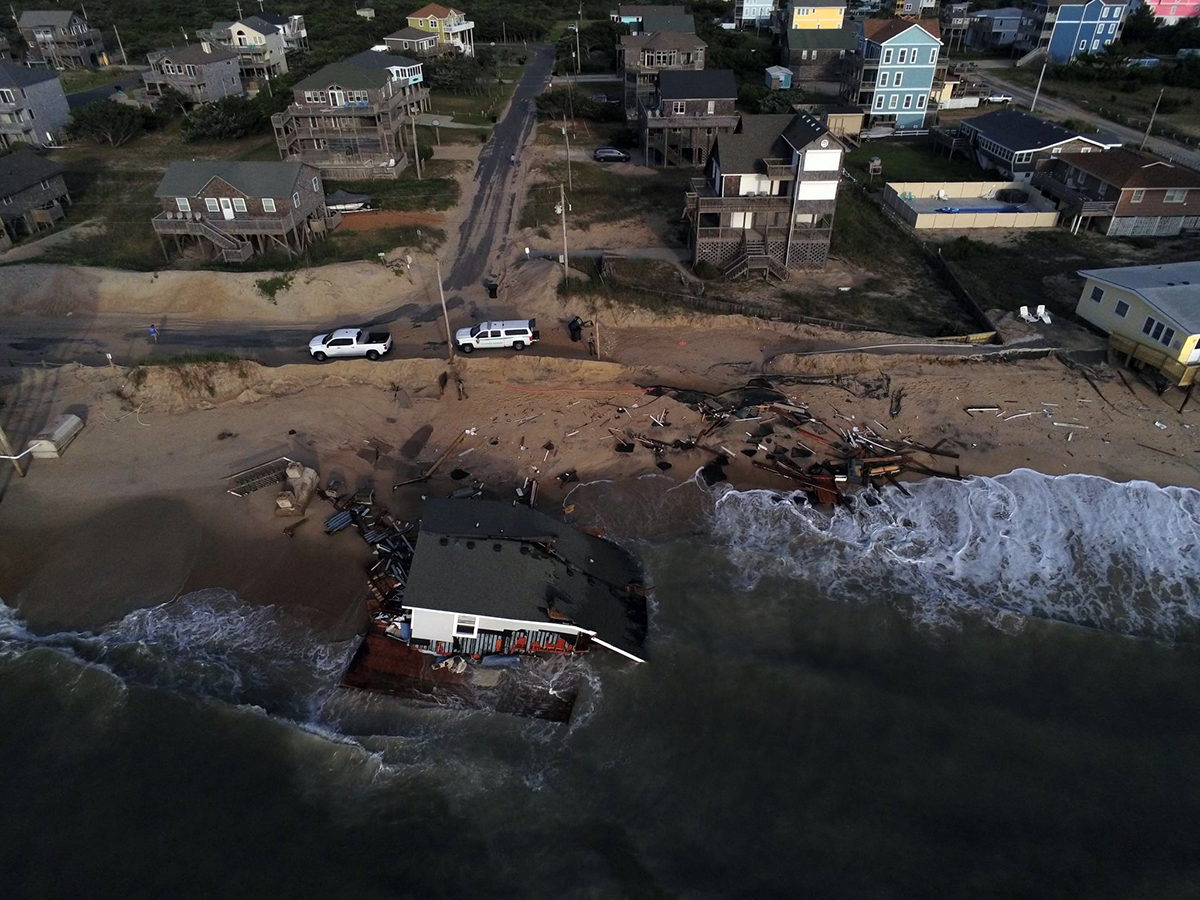
RALEIGH – Bills to establish a new shellfish leasing program and extensive changes to the state’s marine fisheries oversight began moving through the Senate this week.
Sen. Norm Sanderson, R-Pamlico, introduced both measures Wednesday morning in a review-only session of the Senate’s Agriculture and Natural and Economic Resources Committee.
Supporter Spotlight
Sanderson said Senate Bill 554, Marine Fisheries Reforms, represents the most significant set of changes to the way the state handles fisheries issues since the landmark 1997 legislation that created the current system.
“It’s time that we stop playing politics with a natural resource that belongs to all the citizens of this state.”
Sen. Norm Sanderson
The new bill changes the appointments to the nine-member Marine Fisheries Commission, replacing two at-large members with two additional scientists with expertise in areas such as marine estuarine ecology, water quality, habitat protection, fisheries biology or habitat protection.
It would also change the rules how the commission can call for meetings and shifts more authority on fisheries plans to the director of the Division of Marine Fisheries, specifically designating the director as the sole source of proposals for time periods in fisheries management plans.
Last month, state Department of Environmental Quality Secretary Michael Regan criticized the current Marine Fisheries Commission for calling an emergency meeting to override a Division of Marine Fisheries decision on the flounder fisheries plan.
Sanderson said the changes are needed to bring to an end near-constant battles between commercial and recreational fishing interests.
Supporter Spotlight
In addition to Sanderson, the chief sponsors of the bill are Sen. Harry Brown, R-Onslow, and Sen. Bill Rabon, R-Brunswick.
“This is my ninth year in the General Assembly and every year I’ve been here we’ve had issues with fisheries management plans, with the Division of Marine Fisheries, with recreational fishermen and with commercial fishermen,” Sanderson said. “It’s time that we stop playing politics with a natural resource that belongs to all the citizens of this state.”
He said the change in the composition would balance the Marine Fisheries Commission, making it three commercial fishing representatives, two recreational fishing representatives and three scientists. Eliminating the two at-large seats prevents one set of interests from dominating the commission.
“I think because of the nature of this resource and the value of this resource that we should settle this once and for all and make our plans based on scientific evidence and not political pandering,” Sanderson said, calling the bill a “giant step” in the right direction. “I think if we manage these resources correctly there will be enough resources for everybody.”
Representatives of commercial and recreational fishing disagreed on the bill.
Jerry Schill, director of government relations for the North Carolina Fisheries Association, said most of the commercial fishing concerns had been addressed and the organization is in agreement with the bill. “I’ve been doing this for 32 years and it’s the most positive I’ve felt in a long, long time,” he said.
His counterpart in the recreational fishing industry, David Sneed, executive director of the Coastal Conservation Association, said that while there are some good ideas in the bill, he wanted to see a more comprehensive approach to fisheries.

“We have no problem with more scientific-based management, however there’s very little in the bill that would actually serve to protect or enhance our public trust fisheries resources. It’s an attempt to shift policy making authority for coastal fisheries resources management from the MFC to the division and DEQ,” Sneed said.
That’s the opposite of how the state’s wildlife resources are handled. Sneed said the state needs to change its definition of sustainable harvest.
Sen. John Alexander, R-Wake, said that as the bill moves forward, he would like to see some of the concerns raised by Sneed and others addressed.
A committee vote on the bill is expected this month.
Shellfish Enterprise Areas
Also heard, but not voted on Wednesday, was the Senate version of a shellfish aquaculture plan that would create new shellfish enterprise areas and encourage greater productivity in the existing leases.
The new legislation, Senate Bill 648, sponsored by Sanderson and Rabon, is similar to a bill introduced earlier this session in the House by Rep. Pat McElraft, R-Carteret.
It gives the DEQ secretary authority to establish one or more aquaculture enterprise areas and for the Marine Fisheries Commission to establish rules for shellfish bottom leases. The leases would be non-transferable and would revert to the state if relinquished or terminated.
The bill also sets up a pilot project for three larger-scale leases in Pamlico Sound of 50 acres each, up from the current state limit of 10 acres. It prohibits any one company or shellfish operation from holding more than 100 acres. The pilot areas, which would be established by DEQ and DMF, would require setbacks of 250 yards from the shoreline or from other leases, up from the current 100 yards now required.
The legislation, which follows a failed attempt by legislators last year to expand the leasing program, also would set productivity requirements to help maximize output from existing leases and require leaseholders to reach those goals or risk having their leases terminated.
It establishes a moratorium on new shellfish cultivation and water column leases in New Hanover County waters from the Wrightsville Beach Bridge through Masonboro Inlet to the waters off Peden Point and in Bogue Sound in Carteret County from the U.S. 70 high-rise bridge in Morehead City to the Emerald Isle bridge. The moratorium would take effect July 1, 2021.
Sanderson said the troubles with last year’s legislation was that it tried to do too much too fast.
He said the new legislation was a more measured approach and includes a number of studies to help flesh out the right direction for growing the industry.
“We want to do this step by step by step so that we don’t make any mistakes,” he said.
Among the studies are a look at reducing conflicts between shellfish leases and other uses for the areas; a study of penalties and violations on unlawfully taking shellfish; a review by the North Carolina Coastal Federation of ways to set up a low-interest loan program for startups; and a study by the Department of Agriculture and Consumer Services of crop insurance for shellfish growers and other loss-mitigation and protection programs.







